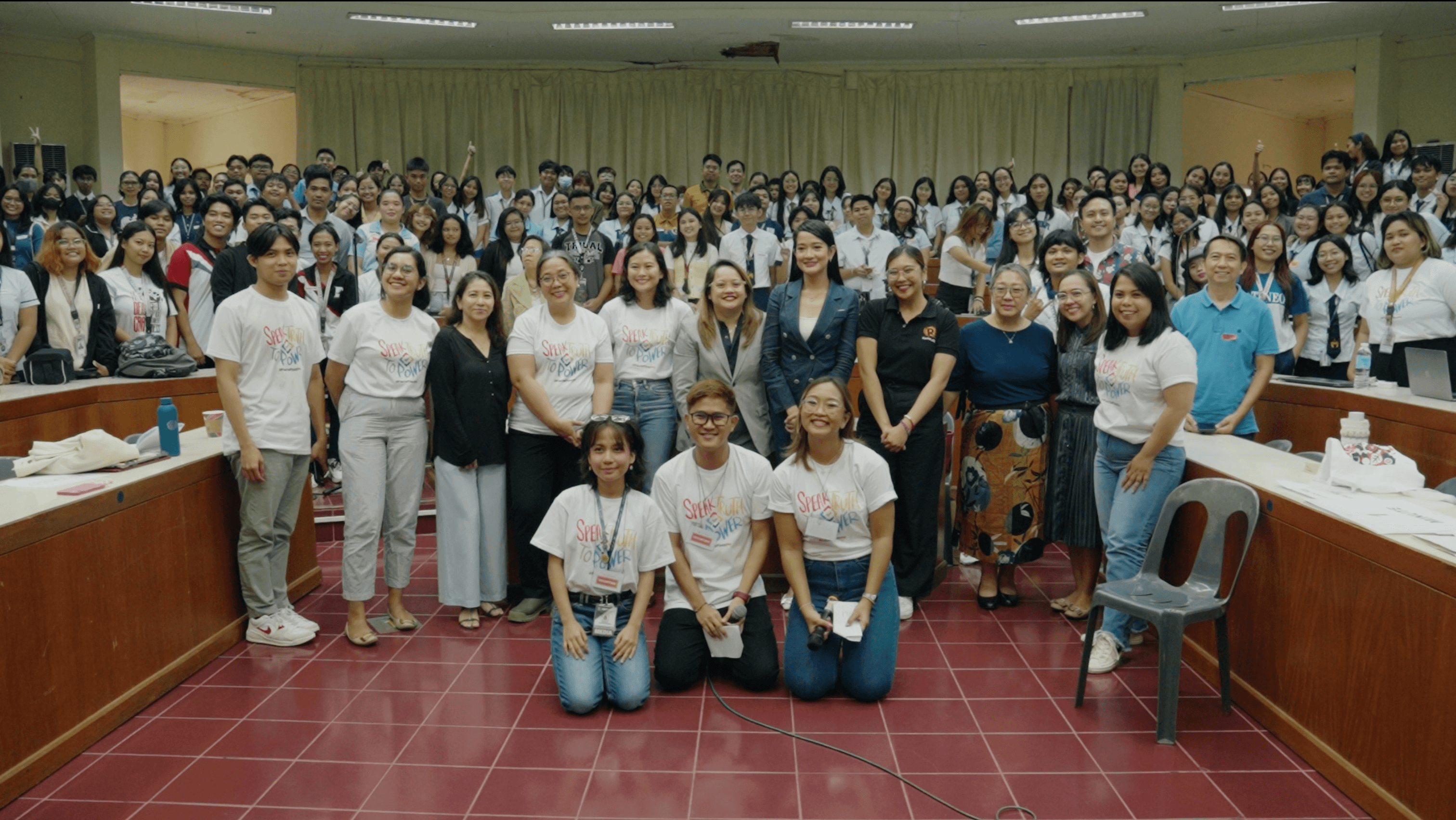SUMMARY
This is AI generated summarization, which may have errors. For context, always refer to the full article.

NAGA CITY, Philippines – Amplifying media and information literacy efforts to make communities resilient to disinformation took the spotlight during the #FactsFirstPH roadshow in Naga City on Friday, November 10.
Five experts from the media, the academe, and the government, talked about ways to make communities resilient to disinformation in a panel discussion at Ateneo de Naga University (AdNU) during the first day of the roadshow’s Naga leg.
Lawyer Carmela Francia Peña, director of Ignatian Legal Apostolate Office, and Antonette Eduardo of One Media TV emphasized the need to empower communities in fighting disinformation by ramping up media and information literacy efforts.
“You have to educate everyone how to check facts, to consume knowledge. You can only do that by empowering people,” Peña said.
Eduardo said that people have different levels of what they know about fact-checking. The One Media TV journalist emphasized that in some cases, spoon-feeding is necessary to familiarize people with fact-check methodologies.
“There are people who need to be spoon-fed. There are people who need to know how to fact-check. Empowerment sometimes starts with spoon-feeding,” Eduardo said.
Agreeing with Peña and Eduardo, Marj Fajardo, AdNU Dean of the Office of Research and Creative Endeavor, explained that the current media and information literacy curriculum is not enough as it does not have lessons focused on social media.
“The curriculum focuses on concepts about media but not talking about social media. It needs to be studied further,” Fajardo said.
Fajardo also pointed out that media and information literacy, should also be taught to younger students in elementary an junior high school, not just in senior high school.
“I think what we should do is to be preventive in our approach. Rather than okay, ‘malalaki na kayo (you are now more mature) so we should already teach you this,’ I believe even elementary students, even preschool students could actually already be taught [fact checking],” Fajardo said.
Rappler lead researcher on disinformation and platforms Gemma Mendoza said that social media has allowed the public to have a “microphone” to have an online presence that could influence other people.
However, Mendoza said that this “power” given by social media comes with great responsibility and the problem arises when people who have established a presence online do not know what these are.
Mendoza also agreed with the rest of the panel regarding the need for media literacy training, but also said that the platforms where disinformation spread also need to be held accountable.
“I agree there needs to be media literacy trainings, we need to know how to responsibly use this and we also need to actively engage in platforms because at the end of the day, these has become the conversation spaces and there needs to be governance there,” Mendoza said.
During the panel discussion, Naga Public Safety Office Head Renne Gumba also explained the nuances, limits, and responsibilities of government workers regarding telling facts. He pointed out that they can only provide facts directly covered in their specific posts.
Gumba said that the limitation was the reason why the public was more capable of finding the complete context of facts from the government. Gumba tied this with the role of the public to hold people in government accountable.
After the panel discussion in the morning, MovePH also conducted workshops in fact-checking and digital hygiene in the afternoon. Mendoza led the workshop on digital hygiene while Rappler researcher Lorenz Pasion led the fact-checking workshop.
The #FactsFirstPH event in Naga City marked the second stop of the MovePH roadshow series this year, which aims to actively involve local communities to amplify the importance of factual information on digital platforms.
Around 165 students, media professionals, government agency representatives, and members of the academic community participated in the public forum while 41 attended the workshops. – Rappler.com
Add a comment
How does this make you feel?



![[WATCH] Rappler Live Jam: dwta](https://www.rappler.com/tachyon/2024/07/live-jam-1280-baba.jpg?resize=257%2C257&crop=179px%2C0px%2C1080px%2C1080px)

![[DECODED] The Philippines and Brazil have a lot in common. Online toxicity is one.](https://www.rappler.com/tachyon/2024/07/misogyny-tech-carousel-revised-decoded-july-2024.jpg?resize=257%2C257&crop_strategy=attention)




There are no comments yet. Add your comment to start the conversation.